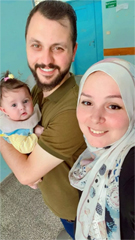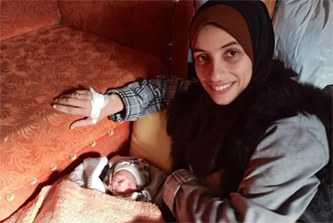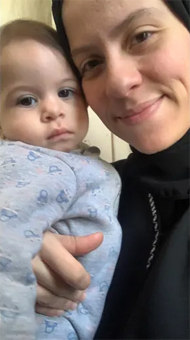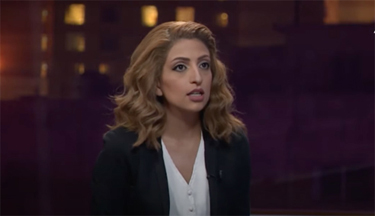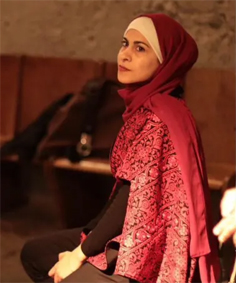|
CRY FREEDOM.net
formerly known as
Women's Liberation Front
MORE INSIGHT MORE LIFE
Welcome to cryfreedom.net,
formerly known as Womens
Liberation Front.
A website
that hopes to draw and keeps your attention for both the global 21th. century 3rd. feminist revolution as well
as especially for the Zan, Zendegi, Azadi uprising in Iran and the
struggles of our sisters in other parts of the Middle East. This online magazine
that started December 2019 will
be published every week. Thank you for your time and interest.
Gino d'Artali
indept investigative
journalist
radical feminist and women's rights activist
'WOMEN, LIFE, FREEDOM'
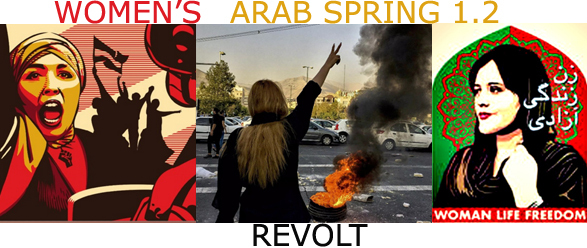
You are now at the section on what is happening in the rest of the Middle
east
(Updates
August 18, 2024)
Click here for the
Iran 'Woman, Life, Freedom' section
Updated August 16, 2024
For the 'Women's Arab Spring 1.2' Revolt
news
click here
Updated August 16, 2024
CLICK HERE ON HOW TO READ
ALL ON THIS PAGE
|
SPECIAL
REPORTS PALESTINE
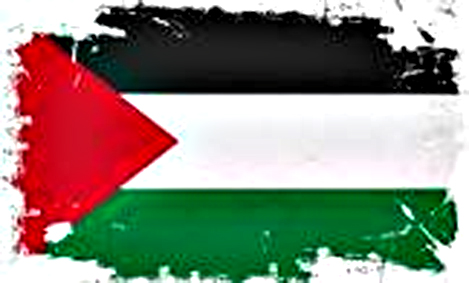
FROM THE RIVER TO THE SEA - FREE PALESTINE
August
wk3bis -- August
wk3 P4 --
August wk3 P3 --
August wk3 P2 --
August
wk3 -- August
2 P2 -- August
wk2 -- August
wk1 P2 --
August wk1 --
Click here for an overview by week in 2024
|
August 17 - 16, 2024
<<Omar Assad's family says
'unjust' US decision will not end push for justice
and other news that most likely stands
between
a cease-fire
|
August 16 - 13, 2024
More than 40,000
Palestinians killed in Israeli attacks on Gaza...
and not to forget 2 baby-twins...
but the women aren't going aywhere!
and other news that most likely stands
between
a cease-fire |
August 13 - 12, 2024
<<Exclusive: Al-Tabin
attack 'deliberately timed to cause maximum casualties'
Food for thought: which proves more than enough
how animalistic the israelis interprete their view on
warfare
and more actual news
Click here to go throughout August
and earler, 2024 |
When one hurts or kills a women
one hurts or kills hummanity and is an antrocitie.
Gino d'Artali
and: My mother (1931-1997) always said to me <Mi
figlio, non esistono notizie <vecchie> perche puoi imparare qualcosa da
qualsiasi notizia.> Translated: <My son, there is no such thing as so
called 'old' news because you can learn something from any news.>
Gianna d'Artali.
France 25 - August 17, 2024
<<Hamas rejects Biden's optimism over ceasefire deal
Hamas's spokesman in Lebanon tells Sky News the US president is just
trying to "keep everything sounding positive in the media" and that
Israeli Prime Minister Benjamin Netanyahu has made things "more
complicated" with further conditions. Joe Biden's optimism about an
imminent Israel-Hamas ceasefire is just a bid to keep hostile powers
calm and there have been "no improvements", a spokesman for the militant
group has told Sky News. The US president told reporters on Friday he
was <optimistic> and there are <just a couple more issues> that US,
Qatari, and Egyptian negotiators have to resolve between the two sides.
But speaking to Sky News' special correspondent Alex Crawford, Hamas's
spokesman in Lebanon Dr Ahmad Abdulhadi said this was "not true". "The
Biden administration is trying to show that the environment is positive.
But the first round showed there are no improvements," he said. "The
mediators told us that the disagreed points haven't been solved and
[Israeli Prime Minister Benjamin] Netanyahu added more conditions on it
and made it even more complicated." He said Mr Biden's claims were just
to <keep everything sounding positive in the media> and <keep the Axis
of Resistance calm and to stop it responding to the assassination and
not slip into a regional war>.
The Axis of Resistance refers to the Iranian-led alliance between
various Islamist groups, including Hamas and Hezbollah.
How strong is Iranian-backed Hezbollah?
Israel is believed to have killed Hamas's chief political leader Ismail
Haniyeh in Iran last month, in what the group described as a
<treacherous Zionist raid on his residence in Tehran>. Mr Netanyahu's
office said it was <cautiously optimistic> about hopes of a ceasefire on
Saturday. It added that it hopes heavy pressure on Hamas from the US and
others will ease its stance on the American proposal and allow for a
breakthrough.
The IDF claimed it struck a Hezbollah weapons storage facility, however
the business owner has denied it.>>
Source:
https://news.sky.com/story/hamas-spokesman-refutes-bidens-optimism-over-ceasefire-deal-13198553
Sky News - August 6, 2024 - Dominic Waghorn International affairs editor
<<Inside Jit - the West Bank village where Israeli settlers burned homes
and cars and killed one man
Palestinians in the West Bank village of Jit said that Israeli settlers
came like a <paramilitary group> - armed and organised. In a picturesque
hillside village, in the occupied West Bank, the latest victim of this
conflict was being buried. Day trader, 23-year-old Mahmoud Abdel Qader
Sadda was shot dead by Israeli settlers rampaging through his small
community.
The village turned out to carry him to his grave.
Friday prayers were held before the funeral procession
Boys joined men waiting for the end of Friday prayers. Some wept and
consoled each other.
The mood was one of shock and grief.
Jit is a peaceful village we were told, perched high on a West Bank hill
it had till now felt aloof and remote from the region's deepening
conflict.
Then the settlers came.
There's little dispute about what they did. Their every move seems to
have been caught on CCTV cameras.
'What have we done to them?'
Outside one house, masked men doused furniture with fuel before setting
it alight. Their prayer strings hung from under their jackets. Inside,
the Arman family sat terrified. We found them today recovering. Their
veranda was burned and sooty, in the middle of the wreckage a baby
stroller sat a melted wreck.
Who are the Israeli settlers who attacked village?
The women of the house told us loudly what they thought of the men who
came to visit last night. But eight-year-old Dima was the most
expressive. "I was scared," she told us. "So scared. I was crying. All
the children were. Why won't anyone protect us? It's wrong what these
settlers are doing. They shouldn't act this way. What have we done to
them? We mind our own business." There was no one to protect anyone here
as the rampage continued. Across the village, another arson attack was
underway also caught on camera. Settlers run around a car, smashing its
windows before igniting a massive explosion. The Hyundai was owned by
Hassan Arman. He seemed to seethe with a barely concealed fury as he
spoke. What he said about the settlers was both revealing and repeated
by others. "They're not just settlers. They are way past that now. This
is a paramilitary group, dressed in uniform, with settlers' mentality.
The attack was not random, it was carefully planned. The armed men were
divided in an organised manner." Standing outside his mother's home, its
interior blackened with soot, another man up the road repeated that
claim. The intruders were organised like paramilitaries and well-armed.
And he said they shouted to the villagers that they would force them to
leave the West Bank and go to Egypt or Jordan. He claimed the settlers
also said they had been sent by Itamar Ben Gvir. Ben Gvir is Israel's
national security minister and a far-right Jewish extremist with a list
of convictions for racism and membership of Jewish terrorist
organisations. The Israeli government has condemned this attack, but
since 7 October Israeli settlers have launched hundreds of them with
almost total impunity. Critics will say as long as far-right extremists
remain in the Israeli government, their supporters will be emboldened to
carry out more of these attacks.
'The Israeli army didn't help'
The village is overlooked by an Israeli military outpost. The IDF says
it sent troops into Jit to bring order as soon as the attack began.
There is a military base nearby.>>
Source:
https://news.sky.com/story/inside-jit-the-west-bank-village-where-israeli-settlers-burned-homes-and-cars-and-killed-one-man-13197961
France 25 - August 17, 2024 - By Samuel Forey (Jerusalem, correspondent)
and Helene Sallon (Beirut (Lebanon) correspondent)
<<Israel-Gaza negotiations: Washington steps up efforts to reach
agreement
The US has presented a new draft text for the implementation of a truce
between Israel and Hamas and to avoid a regional war. But there are
still many stumbling blocks, and discussions are expected to continue in
Cairo. The US administration has declared these negotiations to be <last
chance.> The aim of the meeting in Doha, Qatar, on August 15 and 16
between the Israeli delegation and the American, Egyptian and Qatari
mediators, was not only to relaunch talks on a ceasefire agreement
between Israel and Hamas in the Gaza Strip after 10 months of war. It is
now also to prevent a regional confrontation, by convincing Iran and the
Lebanon-based Hezbollah organization to abandon their promised
retaliation against Israel, following the targeted assassinations of
Hamas leader Ismail Haniyeh and Hezbollah top commander Fouad Shukur in
Tehran and Beirut on July 31. Two days of talks ended on Friday with a
declaration from mediators expressing cautious optimism. Washington had
presented a new proposal for an agreement, aimed at <bridging gaps>
remaining for implementation of a truce between Israel and Hamas. <We're
closer than we've ever been> to an agreement, said US President Joe
Biden. "We're not there,> he acknowledged, but said a compromise was
<much closer than it was three days ago.> <We've made a lot of
progress,> confirmed an American source close to the negotiations, who
stated that the new proposal was based on the Biden plan, <with a few
clarifications.> Presented on May 31, this plan provides for an initial
six-week truce, accompanied by Israeli withdrawal from densely populated
areas of Gaza and the release of some of the 115 hostages still held by
Hamas in exchange for Palestinian prisoners held by Israel. The White
House is hoping to conclude an agreement before the end of next week. A
meeting has been scheduled in Cairo, Egypt, to continue discussions,
particularly of a technical nature, with the aim of reaching a final
agreement. Hamas, which has been kept informed of the progress of
discussions, has already responded that the American proposal contains
<new conditions> from Israel which it rejects.
"To say that we are approaching a truce agreement is an illusion," said
Sami Abou Zouhri, a senior Hamas official, in a statement to French news
agency Agence France-Presse (AFP) on Saturday, August 17, denouncing the
"imposition of American diktats."
Hamas under enormous pressure
Among the stumbling blocks, one of its officials cited the continued
presence of Israeli troops along Gaza's border with Egypt, on the
Philadelphia Route. Benjamin Netanyahu introduced this requirement at
the end of July, in order to prevent arms smuggling with Egypt, although
the Israeli military itself claims that their presence is no longer
necessary.>>
Read more here:
https://www.lemonde.fr/en/international/article/2024/08/17/israel-gaza-negotiations-washington-steps-up-efforts-to-reach-agreement_6717405_4.html
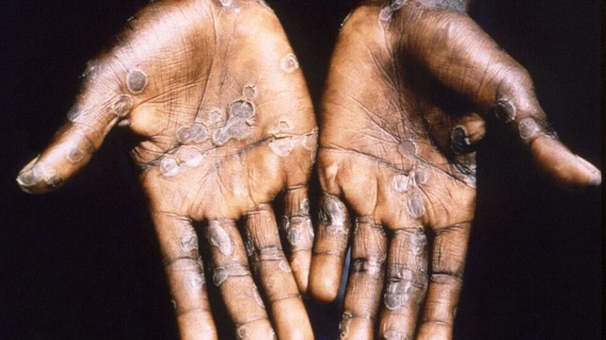
mpox virus
Jinha - Womens News Agency 16 August 2024
<<WHO calls to tackle mpox virus together
After Sweden reported the first case of highly infectious mpox virus,
formerly monkeypox, outside Africa, Tedros Adhanom Ghebreyesus,
Director-General of the World Health Organization, called on the
affected countries to tackle the virus together.
News Center- After Sweden reported the first case of highly infectious
mpox virus, formerly monkeypox, outside Africa, Tedros Adhanom
Ghebreyesus, Director-General of the World Health Organization (WHO),
called on the affected countries to tackle the virus together.
"Identification of the first mpox clade 1b infection in Sweden
underscores the need for affected countries to tackle the virus
together," Tedros Adhanom Ghebreyesus, Director-General of the World
Health Organization, said Friday on social media platform X. "We
encourage all countries to enhance surveillance, share data, and work to
better understand the transmission; share tools like vaccines; and apply
lessons learned from prior public health emergencies of international
concern in addressing the current outbreak." >>
Source:
https://jinhaagency.com/en/actual/who-calls-to-tackle-mpox-virus-together-35544
Al Jazeera - August 16, 2024 - by By Jillian Kestler-D'Amours
<<Omar Assad's family says ‘unjust’ US decision will not end push for
justice
Relatives slam the US government for continuing to fund the Israeli army
unit involved in an elderly Palestinian American man's killing. But more
than that, the Palestinian American said his first reaction to the
United States government's decision to continue funding an Israeli army
unit that bound his elderly uncle and left him for dead could be summed
up in a single word: "devastation". We see this [as] hypocrisy - a US
government that allows a foreign entity to have this opportunity to
kill," Assad, 36, told Al Jazeera in a phone interview from his home in
the state of Wisconsin. "They murdered my uncle in cold blood. My uncle
was not armed, was not...," he continued, his voice trailing off. "He
was just going home from a night with his friends, his cousins, playing
a card game." Omar Assad, a 78-year-old Palestinian American, died in
January 2022 after he was detained by Israeli soldiers at a checkpoint
in his home village of Jiljilya, near Ramallah in the occupied West
Bank. He was forced out of his car and then gagged, blindfolded and
dragged on the ground, according to witness accounts and his family. He
became unresponsive, and the soldiers left him out in the cold at a
construction site without any assistance or medical care. An autopsy
later found that he had died of a heart attack "due to the external
violence he was exposed to". His death prompted widespread condemnation,
and the Assad family and Palestinian rights advocates in the US have
called on President Joe Biden's administration to conduct an independent
investigation and ensure Israel is held accountable. Those calls grew
louder after the Israeli army said in 2023 that soldiers involved in the
incident had been disciplined but none would face criminal charges. In
April of this year, the US State Department said it was looking into
whether to sanction the Israeli military battalion that had detained
Omar Assad - the Netzah Yehuda Battalion - which is notorious for abuses
in the West Bank. But last week, the department said Secretary of State
Antony Blinken had determined that issues with Netzah Yehuda had been <remediated>
- and the unit could continue receiving US government funding. "My
cousins and my uncle's wife don't want to speak to the media. They are
just distraught, and they don’t want to be around any of this because
it's unbelievable," said Assad, Omar's nephew. "It's unjust. It's just
hypocrisy."
Pattern of impunity
The Biden administration's decision to continue funding Netzah Yehuda
comes amid a surge in Israeli military and settler violence against
Palestinians in the occupied West Bank under the shadow of the country's
war in the nearby Gaza Strip.
Nearly 600 Palestinians were killed by Israeli forces and settlers in
the West Bank between the start of the Gaza war on October 7 and August
12, according to the latest figures from the United Nations humanitarian
affairs office (OCHA).
But Palestinians in the occupied territories have faced decades of
Israeli state violence.
They also have come up against what rights groups describe as a system
of "endemic impunity" for soldiers and settlers involved in attacks
against Palestinians. Omar Assad was not the first - or the only -
American citizen killed by Israeli soldiers who later evaded criminal
charges. Just months after the 78-year-old's killing, in May 2022, the
Israeli army fatally shot renowned Al Jazeera journalist Shireen Abu
Akleh in the northern West Bank city of Jenin.

Shireen Abu Akleh
In another recent case, in January of this year, 17-year-old Tawfiq Ajaq,
who was born and raised in the US, was killed in the West Bank village
of al-Mazra'a ash-Sharqiya when an off-duty Israeli police officer and
an Israeli settler opened fire. Both families are still seeking justice
and accountability for the killings of their loved ones.
Ahmad Abuznaid, executive director of the US Campaign for Palestinian
Rights, said, "It's frustrating to see the United States not only have a
lack of care for Palestinians, a lack of care for international law, but
an unwillingness to enforce US law." The US Leahy Law, for example,
prohibits assistance to foreign military units that commit abuses.
Abuznaid told Al Jazeera there is a double standard at play in American
foreign policy: The US government only reserves full-throated outrage
for anti-Israeli actions, but not anti-Palestinian ones. "When the
Israelis commit a whole genocide [in Gaza], when they kill Shireen Abu
Akleh or Omar Assad, the United States is concerned. When the Israelis
can point to something that the Palestinians have done, it's immediately
condemned," he said. That difference signals that "the US government
views Palestinian people as disposable", Abuznaid added. "Their foreign
policy has been shaped around an all-out support for Israel, no matter
what. And this clearly puts US foreign policy at odds with Palestinians
who bear the brunt of Zionism and are currently bearing the brunt of the
US-Israel war machine's genocide."
'Palestinian lives do not matter'
That's a feeling shared by many who knew Omar Assad personally.
Othman Atta is the executive director of the Islamic Society of
Milwaukee, the US city where the 78-year-old had lived with his family
for many years before retiring in Jiljilya. A lawyer by profession, Atta
said he helped Omar with his family businesses. Atta also would see him
at social events in the Milwaukee area, which is home to many families
whose roots go back to Jiljilya. Atta said the US government's decision
to continue funding Netzah Yehuda sends a clear message "that in the
eyes of the US government and US officials, that Palestinian lives do
not matter, even if they happen to be carrying US citizenship".
That, coupled with Washington's unwavering military and diplomatic
backing of Israel after 10 months of a devastating war in Gaza, has
shaken him.
"We actually see a genocide taking place. We see people are being
starved. They are being denied water. They are being bombed into
oblivion [with] no regard for any human life," Atta told Al Jazeera.
"And yet we cheer [Israeli Prime Minister Benjamin] Netanyahu in
Congress. We send billions of dollars in aid," he said. "It's very
difficult to fathom the depths of hypocrisy, of hatred against
Palestinians and innocent people in Gaza. It really shakes you to the
core."
'We need to find justice'
The US State Department did not respond by publication time to Al
Jazeera's request for comment on the decision to continue funding Netzah
Yehuda, or to criticism that the move fails to ensure accountability in
Omar Assad's death. In a statement shared by media outlets last Friday,
State Department spokesman Matthew Miller said Washington had reviewed
information provided by Israel and determined that violations by the
unit had <been effectively remediated>. As a result, under US law,
Netzah Yehuda could continue receiving assistance, Miller said.
But for Assad Assad, Omar's nephew, the decision is not the end of his
family's push for justice. He described his uncle as a serious man who
at the same time would never pass up a chance to joke around and make
everyone laugh. "He was serious, but he was always funny with everything
he did," Assad told Al Jazeera. "He was a good man that raised a large
family. He has grandchildren and sisters and brothers that loved him
dearly. His nephews all missed him," he added.
"We need to find justice for my uncle."
SOURCE: AL JAZEERA>>
https://www.aljazeera.com/news/2024/8/16/omar-assads-family-says-unjust-us-decision-will-not-end-push-for-justice
Al Jazeera - August 16, 2024
<<Gaza records first polio case as UN calls for truce to tackle virus
Hamas says it supports UN request to halt the fighting to allow a
vaccination campaign for children against polio.
'The ultimate vaccine for polio is peace and an immediate humanitarian
ceasefire,' United Nations Secretary-General Antonio Guterres says
The Health Ministry in Gaza has said that it detected the first polio
case in the besieged enclave, hours after United Nations officials
called for a pause in the fighting to enable a vaccination campaign for
children against the virus. In a statement on Friday, the Health
Ministry blamed the "difficult" conditions in Gaza - including the
spread of sewage water in the streets, shortages of medical supplies and
lack of personal hygiene products due to the Israeli blockade - for the
emergence of the virus in the territory. Hours earlier, UN
Secretary-General Antonio Guterres had called for humanitarian pauses in
the war in Gaza to conduct a polio vaccine campaign. "It is impossible
to conduct a polio vaccination campaign with war raging all over," he
told reporters at the UN headquarters in New York. Guterres appealed for
assurances of humanitarian pauses to be provided immediately from the
warring parties as he warned that preventing and containing the spread
of polio in Gaza would take a massive coordinated and urgent effort.
"Let's be clear: The ultimate vaccine for polio is peace and an
immediate humanitarian ceasefire," Guterres said. "But in any case, a
polio pause is a must." The UN chief added that the organisation is
poised to launch a polio vaccine campaign in Gaza for children under the
age of 10, but he said the "challenges are grave".
At least 95 percent vaccination coverage will be needed during each of
the two rounds of the campaign to prevent polio’s spread and reduce its
emergence, given the devastation in Gaza, Guterres said. He noted that a
successful campaign would require the facilitation of transport for
vaccines and refrigeration equipment at every step, the entry of polio
experts into Gaza, as well as reliable internet and phone services.
According to the UN agency for children (UNICEF), the vaccination will
be administered in two rounds and is expected to be launched at the end
of August and September this year across the Gaza Strip. The Health
Ministry in Gaza also said the vaccination campaign cannot be successful
without a ceasefire that would allow medical teams to access people
freely across the territory. "We stress that the vaccination campaign
will not be sufficient without comprehensive solutions to the issues of
sewage and the accumulation of garbage between the tents of displaced
people, and providing drinkable water and ending the aggression," it
said. "The Health Ministry stresses that the spread of this virus will
not stop at Gaza's borders, and the international institutions and
relevant sides must take the necessary steps to end its spread inside
and outside Gaza."
Hamas had said it supports the UN request for a humanitarian pause to
vaccinate children against polio.
"Hamas also demands the delivery of medicine and food to more than two
million Palestinians trapped in the Gaza Strip," Izzat al-Rishq, a
member of the group's political bureau, said in a statement. In July,
Gaza's Health Ministry declared a polio epidemic in Gaza and blamed
Israel’s military offensive in the enclave as the reason behind the
spread of the deadly virus. The Israeli military said in July it had
already begun vaccinating its soldiers against the disease. Polio has
been detected in wastewater in Gaza’s Deir el-Balah and Khan Younis
governorates, Dr Hamid Jafari, a World Health Organization (WHO) polio
specialist, said earlier this month. Without proper health services, the
population of Gaza is particularly vulnerable to outbreaks of disease,
public health officials and aid groups have said. Israel has restricted
humanitarian groups’ access to Gaza, and Israeli forces have bombed aid
convoys, killing dozens of aid workers. Moreover, the Israeli offensive
has put most of Gaza's hospitals out of commission and the repeated
displacement of Palestinians, who continue to face evacuation orders by
the Israeli military, makes it difficult to locate and reach
unvaccinated children. Dr Tanya Haj-Hassan, a paediatric intensive care
physician, told Al Jazeera last month that the presence of the virus in
sewage was a "ticking time bomb". Normally, if you have a case of polio,
you're going to isolate them, you're going to make sure that they use a
bathroom that nobody else uses, make sure that they’re not in close
proximity to other people, [but] that's impossible," she said. "You have
everybody clustering in refugee camps at the moment without vaccines for
at least the past nine months, including children who would otherwise
have been vaccinated for polio and adults who, in the setting of an
outbreak, should receive a booster, including healthcare workers," she
added.
Poliomyelitis, which is spread mainly through the fecal-oral route, is a
highly infectious virus that can invade the nervous system and cause
paralysis.
Children under the age of five, are most at risk from the viral disease,
and especially infants under two, since normal vaccination campaigns
have been disrupted by 10 months of conflict.
SOURCE: AL JAZEERA AND NEWS AGENCIES>>
https://www.aljazeera.com/news/2024/8/16/un-chief-calls-for-polio-pause-in-gaza-war-to-tackle-virus
France 25 - August 16, 2024 - OP-ED Julia Grignon | Samer Moussa
<<Hamas says ceasefire must include complete Israeli withdrawal from
Gaza as talks begin in Doha
The Palestinian group has demanded the implementation of a ceasefire
plan and prisoner-hostage swap as laid out on May 31 by US President Joe
Biden. International mediators held a new round of talks on Thursday,
August 15, aimed at halting the Israel-Hamas war and securing the
release of scores of hostages, with a potential deal seen as the best
hope of heading off an even larger regional conflict. The United States,
Qatar and Egypt met with an Israeli delegation in Qatar as the
Palestinian death toll from the more than 10-month-old war climbed past
40,000, according to Gaza health authorities. Hamas, which didn't
participate directly, accuses Israel of adding new demands to a previous
proposal that had US and international support and to which Hamas had
agreed in principle. White House National Security spokesperson John
Kirby called the talks an important step and said they're expected to
run into Friday. He said a lot of work remains given the complexity of
the agreement and that negotiators were focusing on its implementation.
A ceasefire in Gaza would likely calm tensions across the region.
Diplomats hope it would persuade Iran and Lebanon's Hezbollah to hold
off on retaliating for the killing of a top Hezbollah commander in an
Israeli airstrike in Beirut and of Hamas' top political leader in an
explosion in Tehran. Kirby said that Iran has made preparations and
could attack soon with little to no warning and that its rhetoric should
be taken seriously.
Three-phase plan
The mediators have spent months trying to hammer out a three-phase plan
in which Hamas would release scores of hostages captured in the October
7 attack that triggered the war in exchange for a lasting ceasefire, the
withdrawal of Israeli forces from Gaza and the release of Palestinians
imprisoned by Israel. Both sides have agreed in principle to the plan,
which President Joe Biden announced on May 31 . But Hamas has proposed
"amendments" and Israel has suggested <clarifications,> leading each
side to accuse the other of making new demands it can't accept.
Gaps remain even after months of talks
Hamas has rejected Israel's latest demands, which include a lasting
military presence along the border with Egypt and a line bisecting Gaza
where it would search Palestinians returning to their homes to root out
militants. Hamas spokesperson Osama Hamdan told The Associated Press
that the group is only interested in discussing the implementation of
Biden's proposal and not in further negotiations over its content. A
Palestinian official who closely follows the negotiations said Hamas
wouldn't take part in Thursday's talks, but that its senior officials,
who reside in Qatar, were ready to discuss any proposals from the
mediators, as they have in past rounds. Israeli Prime Minister Benjamin
Netanyahu denies that Israel has made new demands, but he has also
repeatedly raised questions over whether the ceasefire would last,
saying Israel remains committed to <total victory> against Hamas and the
release of all the hostages.
Complex talks
The most intractable dispute has been over the transition from the first
phase of the ceasefire - when women, children and other vulnerable
hostages would be released - and the second, when captive Israeli
soldiers would be freed and a permanent ceasefire would take hold. Hamas
is concerned that Israel will resume the war after the first batch of
hostages is released. Israel worries that Hamas will drag out the talks
on releasing the remaining hostages indefinitely. Hamdan provided
documents showing Hamas had agreed to a US bridging proposal under which
talks on the transition would begin by the 16th day of the first phase
and conclude by the fifth week.
More recently, Hamas has objected to what it says are new Israeli
demands to maintain a presence along the Gaza-Egypt border and a road
dividing northern and southern Gaza. Israel denies these are new
demands, saying it needs a presence along the border to prevent weapons
smuggling and that it must search Palestinians returning to northern
Gaza to ensure they aren't armed. The demands were only made public
recently. Hamas has demanded a full Israeli military withdrawal, which
was also part of all previous versions of the ceasefire proposal,
according to documents shared with the AP that were verified by
officials involved in the negotiations. On Thursday, US State Department
spokesperson Vedant Patel said that the broader framework of the deal
laid out by Biden in May has generally been accepted and that the
negotiation was a process, which was expected to continue.
Le Monde with AP>>
Source:
https://www.lemonde.fr/en/international/article/2024/08/16/hamas-says-ceasefire-must-include-complete-israeli-withdrawal-from-gaza-as-talks-begin-in-doha_6716433_4.html
BBC - August 16, 2024 - By Robert Greenall
<<Risk of regional war hangs over Gaza ceasefire talks
The number of Palestinians reported killed in the war between Israel and
Hamas has surpassed 40,000
If the leaks to local papers are true, even Israel's defence chiefs are
urging Prime Minister Benjamin Netanyahu to make a deal and agree a
ceasefire in Gaza. Since Israel's negotiators last made the trip to the
Qatari capital for talks, the stakes - and the pressures - have only
grown. In Israel, the relatives of hostages still held in Gaza are
calling this the <last chance> to get some of them out alive.
In Gaza, the Hamas-run health ministry - whose figures have been used by
the UN and Israel in the past - says the number of people killed in
Israeli operations there since the war began has now passed 40,000.
And the US is moving a second aircraft carrier and a missile-equipped
submarine to the region, after threats from Iran and its Lebanese ally,
Hezbollah, to attack Israel in response to the assassinations of key
Hamas and Hezbollah leaders last month.
There is no lack of incentives for a deal.
And no lack of pressure either. The US believes a truce in Gaza could
help calm the entire region.
Israeli Prime Minister Benjamin Netanyahu has denied that he added new
conditions to earlier ceasefire proposals
Visiting Lebanon on Wednesday, US envoy Amos Hochstein said a deal would
also help create the conditions for a deal in a growing cross-border
conflict between Israel and Hezbollah. <We have to take advantage of
this window for diplomatic action and diplomatic solutions,> he said.
<That time is now.> His boss, President Joe Biden, appears to be
managing expectations. <It's getting harder,> he told reporters in New
Orleans this week, adding, <I'm not giving up.”
With so much to gain, why are hopes for these talks so thin?
First, the red herring: the declaration by Hamas that it would not send
a delegation to the meeting is unlikely to have a major impact.
Negotiations have always been indirect, shuttle diplomacy - Hamas
representatives do not talk directly to Israel or the US. And the
group's main international base is Doha, where talks are taking place,
and where Qatari and Egyptian negotiators have an open channel of
communication with them.
Hostages' families have told Israel's negotiators not to return without
a deal
The real issue, according to former Israeli hostage negotiator Gershon
Baskin, is a lack of motivation by the Israeli and Hamas leaders.
"The United States, Egypt and Qatar have decided that they need to
change the rules of the game: put an ultimatum on the table, put a
bridging proposal on the table, and tell Hamas and Israel that they have
to do it," he said. "[But] it's obviously that the mediators want the
agreement more than the parties do, and that's a big part of the
problem."
Chen Avigdori's wife and 12-year-old daughter were among the 251 people
kidnapped by Hamas in the 7 October attacks on Israel, when another
1,200 people were killed. The pair were released in November and he’s
now campaigning to get the remaining 111 hostages out. "I think they are
both holding it up," he said. "I think Sinwar doesn't really care about
his own people. But I think that Mr Netanyahu has skipped some
opportunities that Israel already had to sign the deal." Yahya Sinwar
was elected Hamas's political leader following the assassination of
Ismail Haniyeh in Tehran
For Yahya Sinwar - one of the masterminds of the 7 October attacks, who
became Hamas's political leader following Ismail Haniyeh’s assassination
in Tehran - some analysts believe the calculation may be changing.
<I think Sinwar wants to save himself and save Hamas, because they
haven't been destroyed totally, but militarily they've been defeated and
it could turn into a rout,> said Chuck Freilich of Israel's Institute
for National Security Studies. <Netanyahu is in a more difficult
position, because if there's a deal, there's a very good chance that
he'll lose his coalition.> Benjamin Netanyahu has so far held fast to
certain red lines - including giving Israel the right to restart the war
if later talks on troop withdrawal and prisoner exchanges fail. Mr
Netanyahu's far-right allies have vowed to pull out of the government
if, for example, he agrees to release large numbers of Palestinian
prisoners from Israeli jails, in return for the hostages.
Israeli ground forces are continuing operations in central and southern
Gaza
The sticking points facing negotiators are substantial. But proposals to
bridge some of them have been widely reported in the Israeli media.
For instance, Mr Netanyahu’s insistence that Israeli forces must remain
on Gaza’s border with Egypt, to stop armed groups smuggling in weapons,
has been countered with solutions involving technology and the
involvement of allies on the ground. Hamas has accused Israel of
bringing in new demands and said that the time for negotiation is over.
It has said it is ready to implement the terms it agreed to last month.
Israel denies it is adding new conditions, describing them as an attempt
to clarify what was already agreed. The deal's international mediators -
the US, Qatar and Egypt - certainly have some leverage over the two
sides, but it may not be enough to force an agreement if the parties
themselves don't want one.
<The US and Qatar can push, they can cajole, they can offer inducements,
they can offer to help create the technical solutions,> says Chuck
Freilich. <But in the end, it's up to the specific leaders.>
Ultimately, the fate of these talks, of Gaza, of the hostages - even the
fate of the region itself - will rest on the calculations of two shrewd
survivors; two warring men.>>
Source:
https://www.bbc.com/news/articles/c20rxr3pr50o
Women's
Liberation Front 2019/cryfreedom.net 2024


